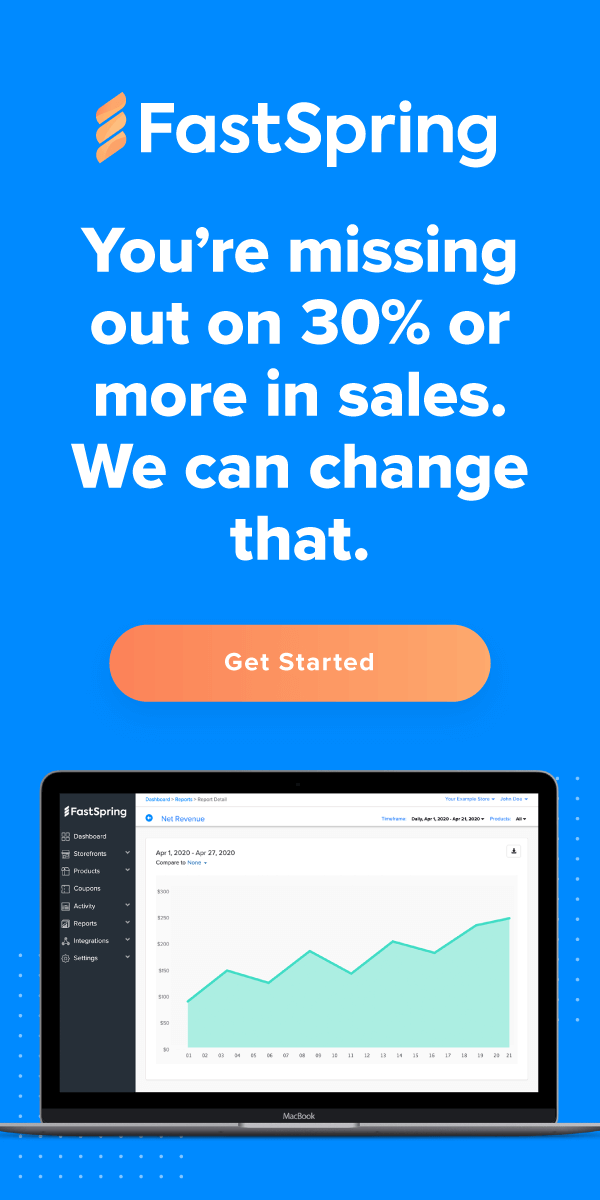Is there a way to start closing enterprise deals faster?
Perfecting your strategy to close enterprise deals doesn’t happen overnight.
The truth is that with multiple touch points, multiple decision makers, legacy styles of selling and lots of legal red tape, it’s been hard for the industry to change.
This leaves AE’s (and even some sales pros) with lingering questions: Are there tried-and-true methods that sales professionals should be using? What do SaaS companies need to know before they approach their prospects with pricey custom products?
The answers to all these questions are deeply embedded in psychology: how we think and how we make decisions. By understanding psychological concepts and biases, you can tailor pieces of your sales process, like proposals and landing pages, to significantly affect the way enterprise decision-makers perceive your offer. This will smoothen out your sales process to work more efficiently, helping you close quicker and higher quality prospects.
To get started, here is our quick crash-course on four sales psychology theories you can incorporate into your existing sales process to close more enterprise deals:
Sales Psychology Lesson 1: Analysis Paralysis
Have you ever visited an online shopping website and ended up buying nothing at all after hours of mindless browsing? You can thank analysis paralysis—a default shutdown of the brain when it’s presented with too many options.
This is a great visual summary of how analysis paralysis works:
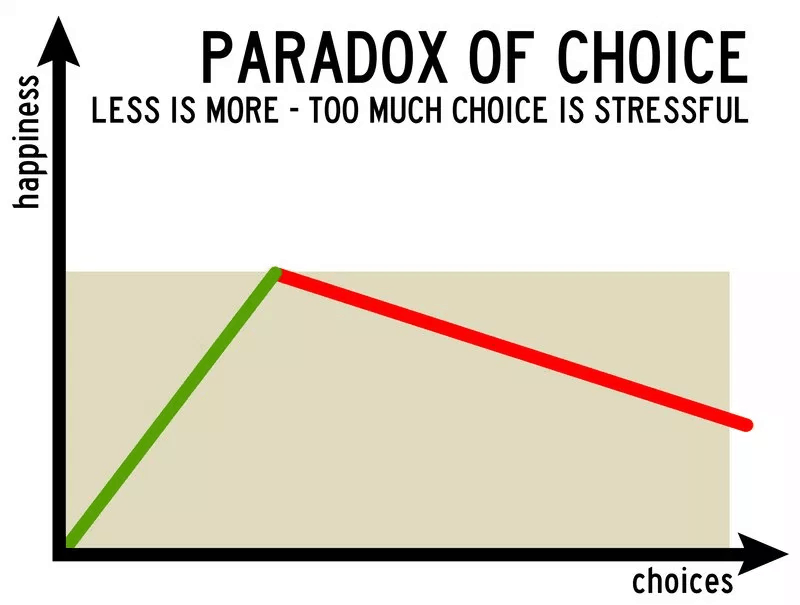
The Science of Analysis Paralysis
What can companies selling enterprise products and services learn from analysis paralysis?
Two things:
- No one buys enterprise solutions off the shelf. A growing trend amongst SaaS companies is listing multiple pricing plans, which is great from the company’s standpoint, but too many choices may cloud the buyer’s mind. Companies, therefore, should focus more on highlighting the services that actually differentiates them from the competitors. They should also give buyers a chance to customize their package thereby minimizing analysis paralysis.
- At this stage in a prospect’s decision-making process, companies should focus more on providing a clear, straightforward directive for them to talk to an account executive—the person who is armed with all the information about the product’s key features and scope as well as custom pricing options. This prevents friction while closing deals.
Hubspot does this nicely.
The company has a dedicated landing page for enterprise customers with three different actions a prospect can take: They can call the sales team, chat online or book a meeting.
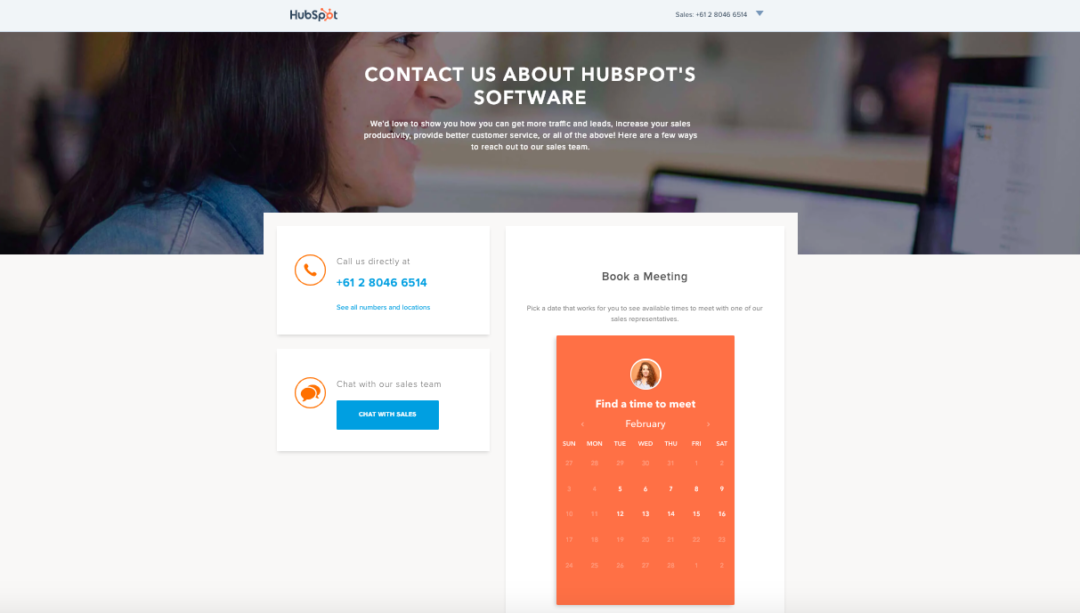
There aren’t a million different ways to get in touch—just a few simple options that invite dialogue and eliminate drop-off.
You can leverage the same approach when you send a proposal to a prospect. FastSpring Interactive Quotes’ custom pricing grids make it easy for prospects to identify and select the right package for their needs. Here’s an example:
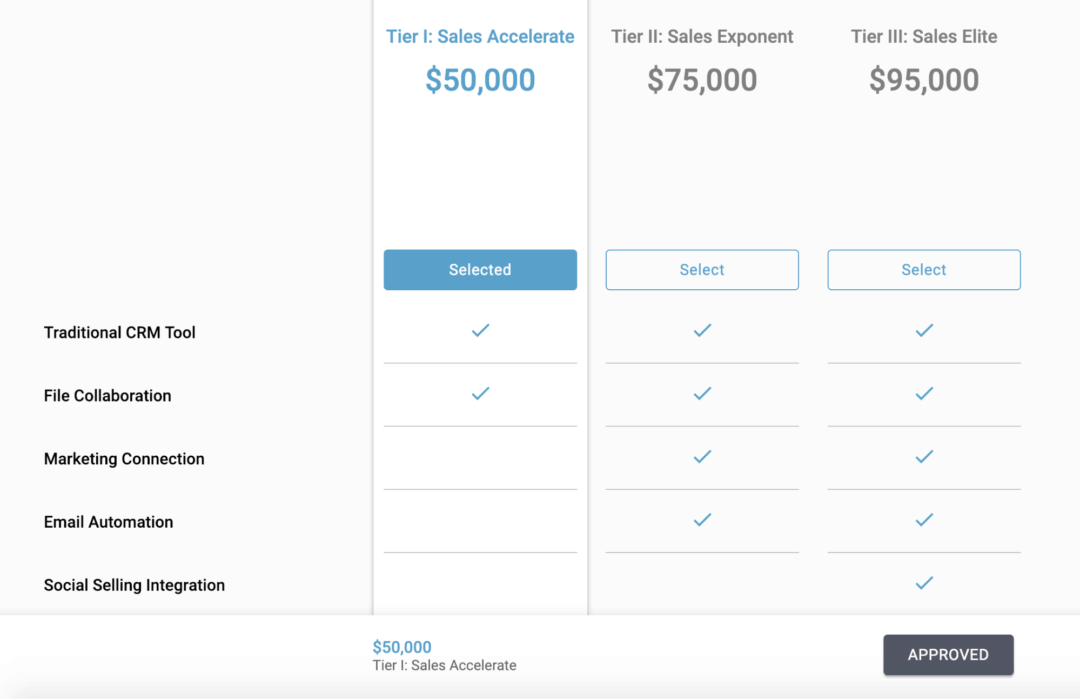
The benefits are obvious:
- No lengthy lists of product features.
- No overwhelming information.
- Clear focus on what the buyer needs
Sales Psychology Lesson 2: Authority Bias
This psychological concept basically means that people tend to be swayed by perceived authority while making decisions. When they sense authority, they envision trust, stability, and success. While this authority bias isn’t directly related to pricing, it’s still relevant because it can be a catalyst in pushing sales.
Intercom employs authority bias on its enterprise landing page by using engaging copy as well as relevant social proof to draw in prospects. A statement that the product is “trusted by 30,000 leading brands” is followed by logos of Intercom’s most prominent customers—the kind of companies they’re hoping to attract more of. Then there’s a testimonial that reiterates the brand’s authority.

The decision-maker sees this page and thinks, If it works for them, it will work for us.
Sales Psychology Lesson 3: Maslow’s Hammer
Enterprise products are rarely “bought” in the traditional sense—in most cases, they are “sold.” This means that sales teams have to constantly find new prospects and close deals in order to bring in revenue.
The challenge?
In most scenarios, the prospect depends heavily on a few familiar tools despite knowing that there are better options out there. This is known as Maslow’s Hammer or the Law of Instrument, which can be summed up in the familiar quotation, “If all you have is a hammer, everything looks like a nail.”
Companies selling enterprise solutions (especially in the SaaS tech space) need to create landing pages that educate prospects on how a new tool can solve their problem better than the “hammer” they’ve been using.
Here’s how Hotjar did this effectively:
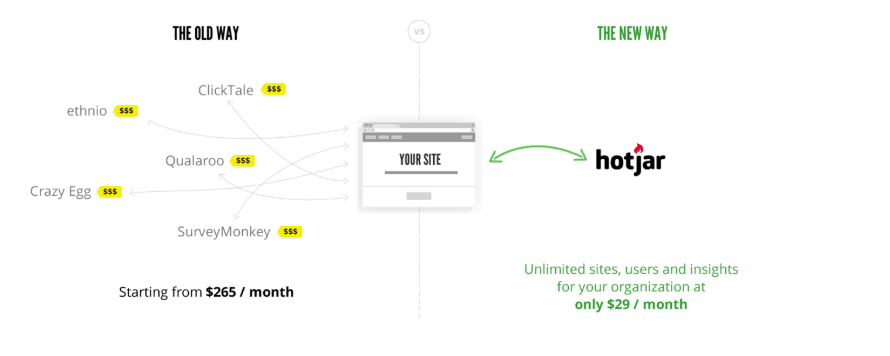
Showing prospects the amount of money they were spending by using multiple tools and comparing that to their solution is a great way to capitalize on Maslow’s Hammer.
Sales Psychology Lesson 4: Bandwagon Effect
The bandwagon effect is the tendency to believe (or do) things that others are believing (or doing)—like herd behavior. People are more likely to buy your product if they see others doing it too.
Maybe you’ve already got testimonials and other forms of social proof on your pricing pages, but from an enterprise purchase standpoint, there is one more element that can be used to close deals faster: product reviews.
How do they help?
Product reviews give the prospective buyer a chance to see what real people think about your product. If the reviews are mostly positive, and the prospect sees that a lot of people use and love the product, they are more likely to buy it too.
Wootric uses this strategy to strengthen its stance in the crowded market of NPS tools by showing G2 crowd ratings and reviews on their homepage:

There are tons of widgets you can use to incorporate this strategy on pages across your website, like your pricing or product pages.
Wrapping Up: Are You Ready to Close Enterprise Deals?
Yes, it’s difficult to close enterprise deals. It’s even more difficult to close them quickly while still taking the necessary time to build critical long-term relationships and that will earn contract renewals down the road.
The four sales psychology lessons in this article highlight four steps you should take to get started:
- Offer a custom pricing solution to empowers your prospects with choice
- Showcase your authority to build trust in new relationships
- Hammer-down your value early to prove your worth
- Push your reviews and ratings to center-stage to show your place in the market
Of these four steps, the hardest to implement is easily the pricing solution. The easiest way to empower your prospects with choice is by using a tool designed to give them that experience.
This step does not have to be time consuming — it’s not something you need to build from the ground up. In fact, the right SaaS pricing tool should fit in seamlessly into your existing sales process.
FastSpring Interactive Quotes is an example of a pricing tool that does just that. Built on the goal of empowering buyers and sellers with interactive and intelligent pricing proposals, FastSpring gives all parties involved in the sale the ideal enterprise shopping experience.




